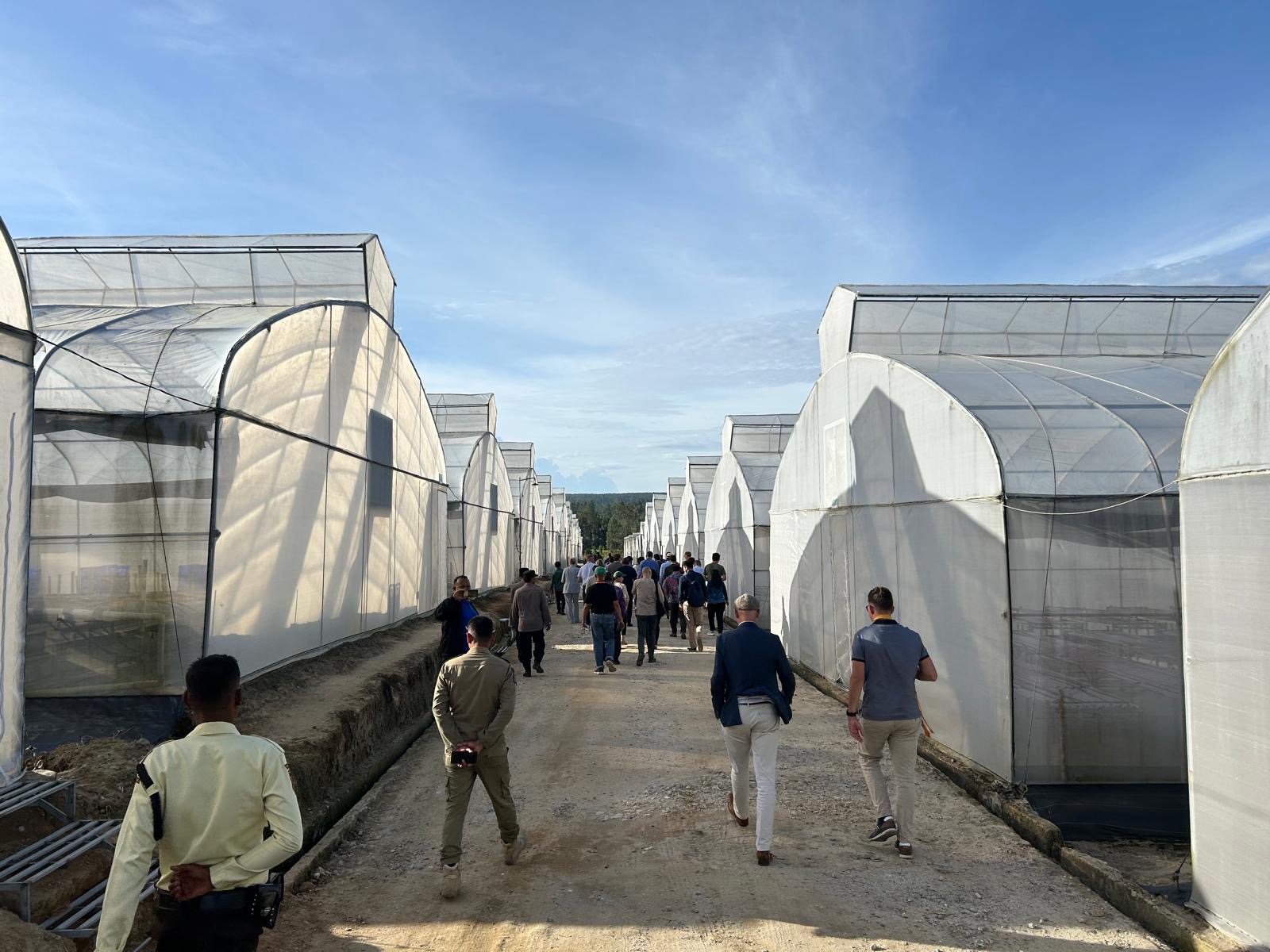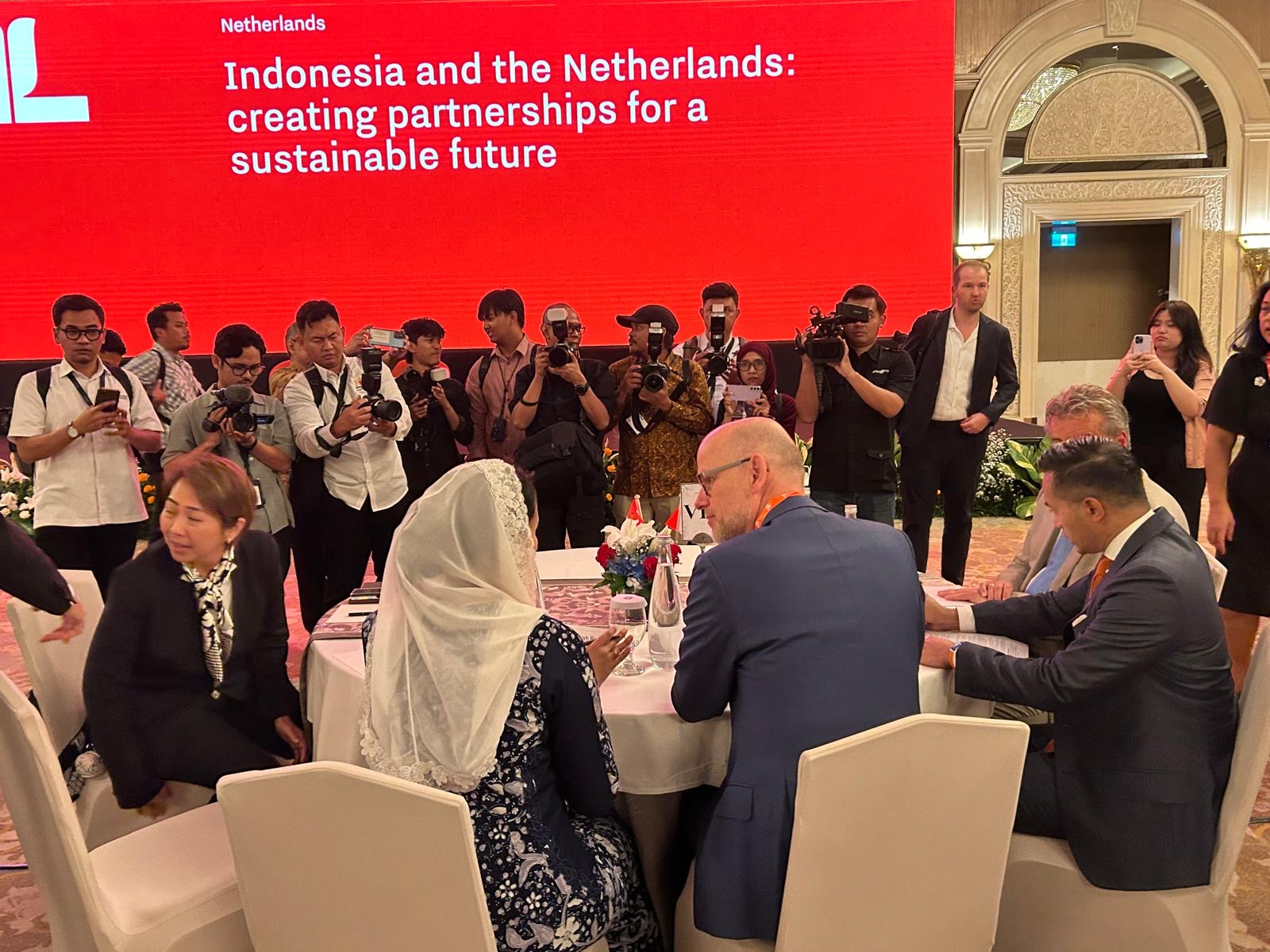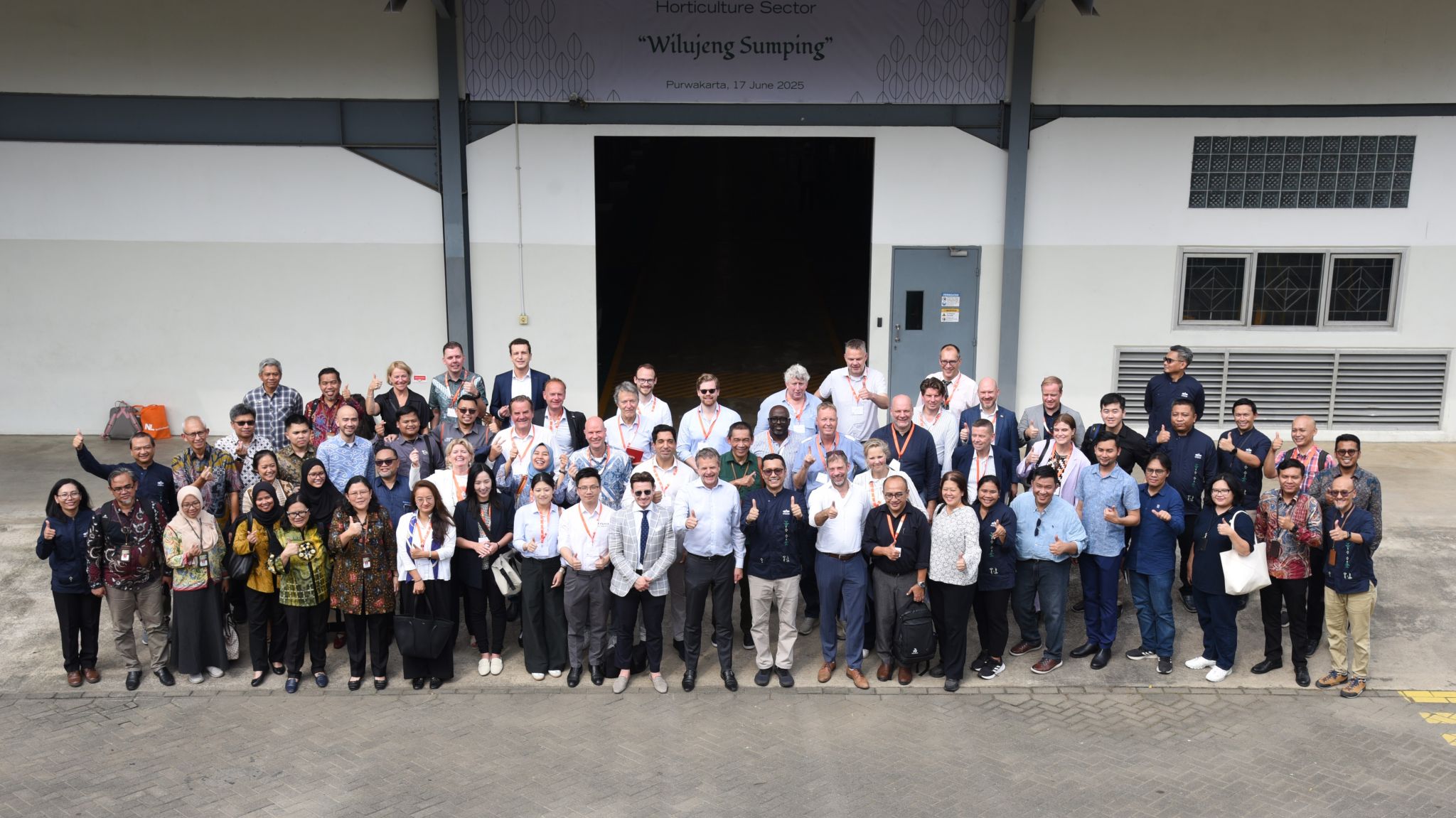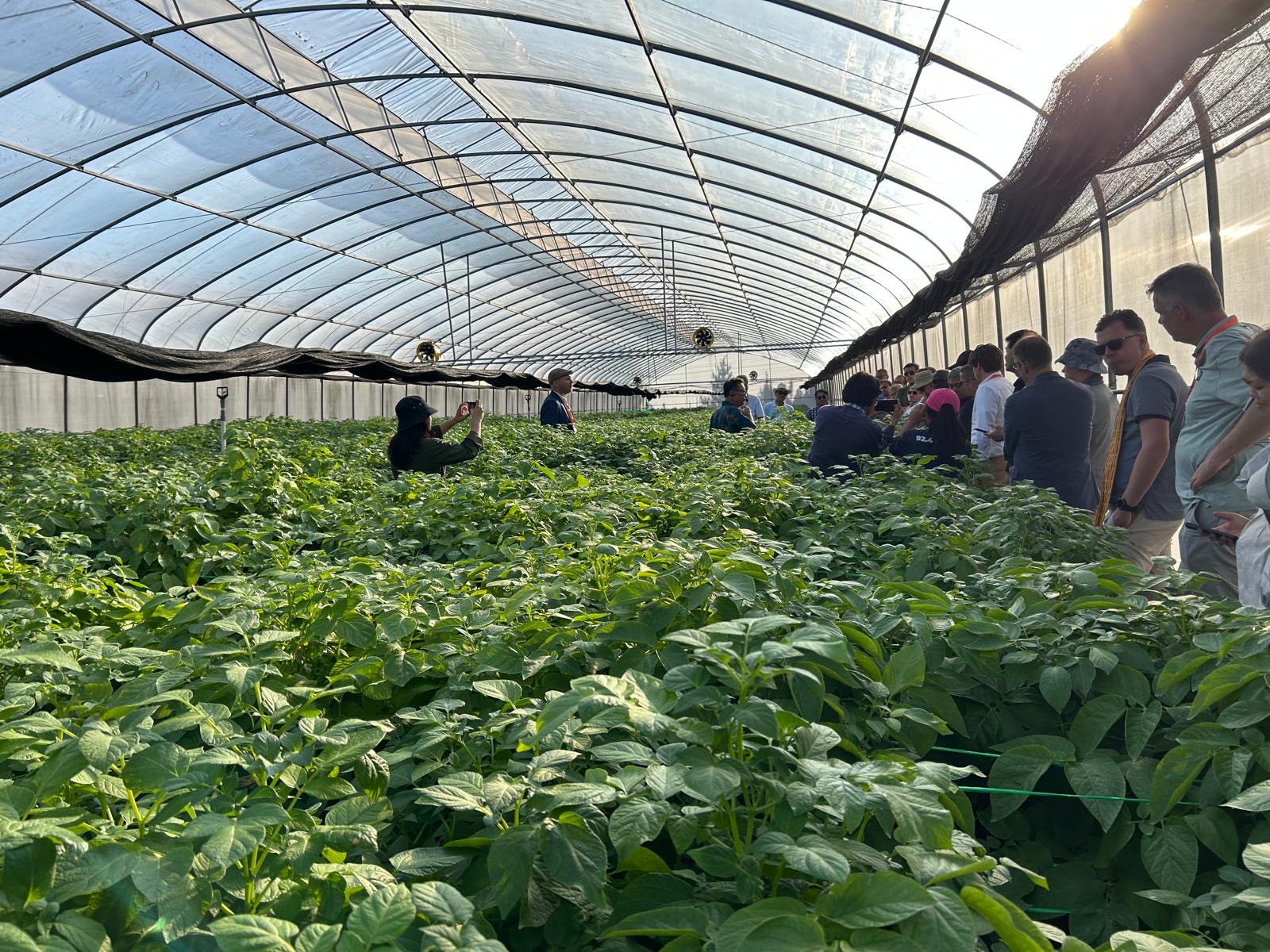During last week’s economic mission to Indonesia, Frederik Vossenaar had the honour of acting as track leader on behalf of Dutch Greenhouse Delta, representing the private sector. The delegation consisted of 32 horticultural companies active in seeds, technology, training & capacity building, and finance & consultancy. The mission took place from June 15 to 19 and was led by Michiel Sweers (Director-General for Foreign Economic Relations) and Guido Landheer (Director of European, International and Agro-Economic Policy).
It is a positive development that horticulture continues to be designated as a priority sector in international economic missions. Since the launch of the combi-tracks in 2023, most of the thirteen qualifying countries have selected horticulture as one of their focus sectors, including Indonesia.Indonesia is Southeast Asia’s largest consumer market and has seen steady economic growth in recent years. The country has a young population of around 280 million people with increasing purchasing power. This growing middle class is embracing a healthier, more active lifestyle and demanding high-quality, safe food. At the same time, there is strong pressure to reduce food imports and shift toward becoming a net exporter.

Mission highlights
The first day featured matchmaking and a seminar on sustainable horticulture. Extra chairs had to be brought into the conference room, a clear sign of the enormous interest and engagement from Indonesian stakeholders.

On day two, the Ministry of Agriculture was visited, where we were welcomed by Vice Minister Sudaryono, who had visited the World Horti Center just this past April. In the afternoon, the delegation toured PT East-West Seed Indonesia and participated in a panel discussion with local government representatives on the regulatory changes needed to improve access to quality seed materials for Indonesian growers.
On day three, we travelled to North Sumatra to visit the Herbs and Horticultural Plants Technology and Science Park and the North Sumatra Food Estate. This Food Estate is a key focus in the Dutch combi-track approach and is strongly supported by the Indonesian government. Across 11,500 hectares, smallholder farmers will engage in the cultivation of horticultural crops, potatoes, and herbs — creating opportunities for greenhouse development.

On the fourth and final day, we returned to Jakarta for a concluding meeting to discuss the next steps in our joint efforts.
We thank RVO, the Embassy and the Ministry of Foreign Affairs for the excellent program. Dutch Greenhouse Delta looks forward to the next steps!

